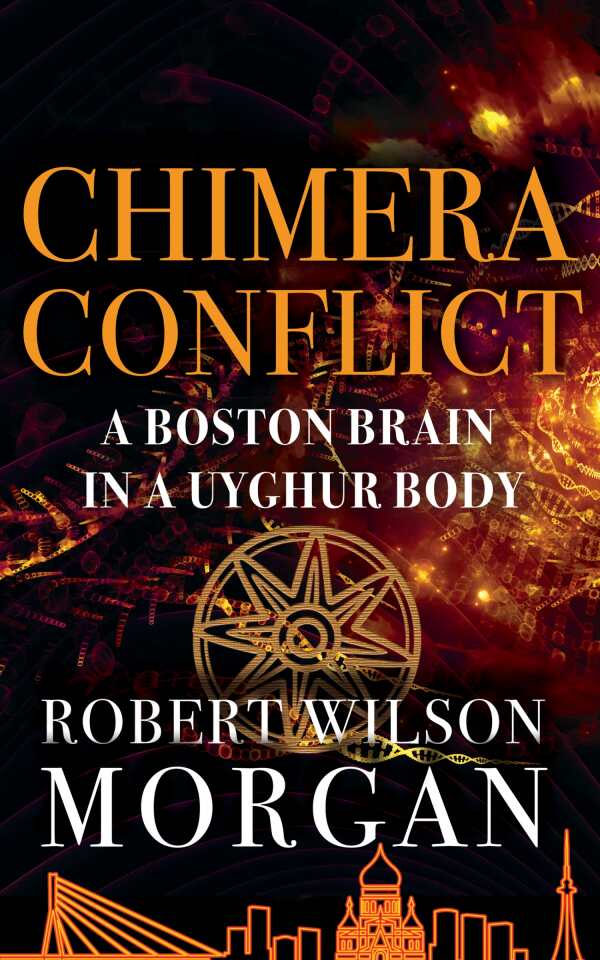Chimera Conflict
A Boston Brain in a Uyghur Body
Chimera Conflict is a provocative thriller in which a doctor undergoes an intriguing surgery following a devastating accident.
In Robert Wilson Morgan’s speculative novel Chimera Conflict, a doctor’s brain is transplanted into a Uyghur man’s body in China, where he starts a new life.
Roger is a Boston native who practices medicine in Denver. He wakes up from a coma following a grisly car crash in Tibet to find himself in an Asian man’s body. He has new identity as Wu. He undergoes rehabilitation, becomes a Chinese surgeon after bribing officials, and struggles to figure out who he is.
Roger-cum-Wu’s initial confusion is dramatic, as is the fact that he volunteers for the experimental surgery that moves his consciousness into the body of a condemned prisoner. After he wakes, his mystified efforts to piece together what happened are intriguing. Later, he experiences involving culture clashes, further fracturing his sense of self: he talks to patients in Mandarin at the Chinese hospital, but also reads about Red Sox games in the Boston Globe. He also seeks to return to the United States and resume his life as a doctor there, where he hopes to run a transplant institute. Back in Denver, he faces a reckoning over his identity. He comes to inhabit two worlds.
Set in a pre-pandemic period, the story is a vehicle for lofty ideas, as of about the ramifications of transferring a brain into a donor body. It thinks through the implications of its outlandish premise in an incisive manner, weighing the ethics, effects, and practical realities of the transplant. Questions surrounding organ donations, high-risk medical procedures, capital punishment, and the plight of the persecuted Uyghur people all factor in. And the prose waxes philosophical in handling these subjects, quoting literary greats as it polishes its central conceit.
But the prose is sometimes technical to excess. Concrete and straightforward, it over pronounces its intentions. Further, its conversations run long, giving it the occasional flavor of a play, rather than a novel. And as the book progresses, its momentum wanes: minute details come to supersede Roger/Wu’s more suspenseful situations. The book mulls through the facts of his work as a doctor and in academia, dwelling on financial matters and other everyday concerns. An eventual confrontation with the Colorado medical board reignites interest, leading the hero to a withdrawal from society, and leading into the present moment. But the story becomes self-referential in the process, resulting in an anticlimactic ending.
Chimera Conflict is a provocative thriller in which a doctor undergoes an intriguing surgery following a devastating accident.
Reviewed by
Joseph S. Pete
Disclosure: This article is not an endorsement, but a review. The publisher of this book provided free copies of the book and paid a small fee to have their book reviewed by a professional reviewer. Foreword Reviews and Clarion Reviews make no guarantee that the publisher will receive a positive review. Foreword Magazine, Inc. is disclosing this in accordance with the Federal Trade Commission’s 16 CFR, Part 255.


